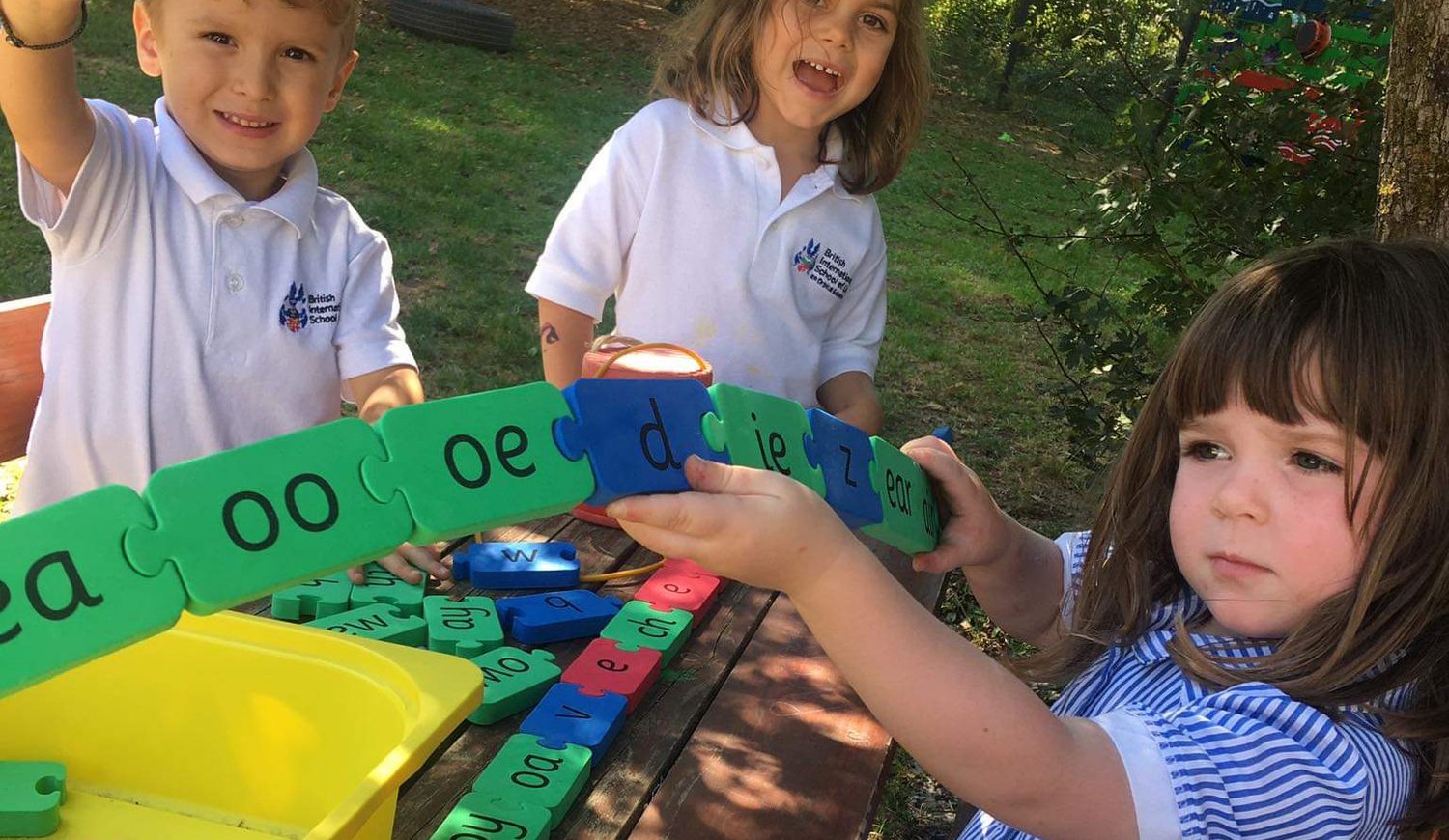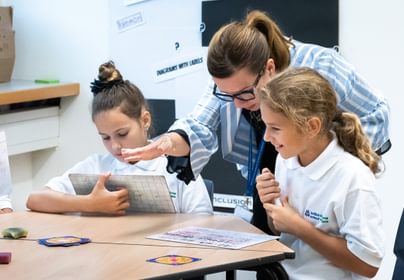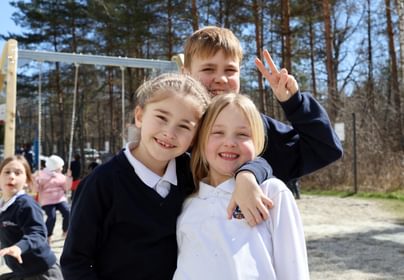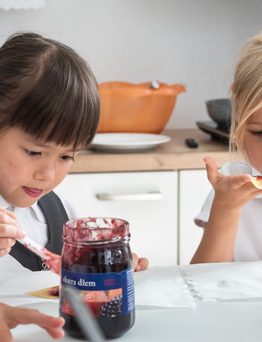
My 3 year old daughter has opened up more in her talking and interaction, all thanks to BISL teachers for ongoing support.
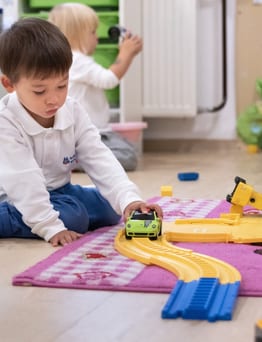
Independence
Free Flow learning areas encourage children to make their own rules and create a place where they can explore themselves as independents, be it indoors or outside.
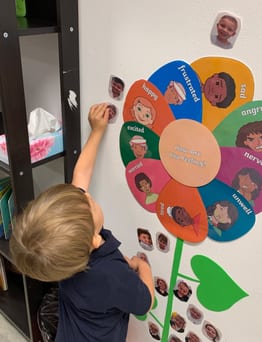
Pace
Free Flow learning enables children to learn and respond to activities and stimulus in their own way and at their own pace.

My 3 year old daughter has opened up more in her talking and interaction, all thanks to BISL teachers for ongoing support.

Independence
Free Flow learning areas encourage children to make their own rules and create a place where they can explore themselves as independents, be it indoors or outside.

Pace
Free Flow learning enables children to learn and respond to activities and stimulus in their own way and at their own pace.
It is important for both you and your
child to feel confident about your child
being cared for by our Early Years
team.
Feel free to ask questions to familiarise
yourself with our routines and let
us know if you have any concerns,
worries or questions. The first weeks
of settling-in are of crucial importance
in your child’s education.
You can already begin preparations,
by talking to them about some of the
activities which they may particularly
look forward to. It may also be helpful
if they can join you in putting together
their ‘things to bring’, such as labelled
wellingtons, lunch boxes etc. You may
wish to read one of the children’s
books with them that describe going to
a nursery.
It is also good preparation, both for
you and your child, if you can continue
to visit us together for short periods
before you start settling them in.
Our settling-in period is a gradual
introduction of your child to our Early
Years, our children, activities, daily
programme and the team. It is also a
gradual withdrawal of your presence.
These two aspects have to be carefully
and sensitively balanced.
Some children find this more
challenging than others. Your child’s
personality will certainly make a
difference: some take to the change
very easily, whilst others need more
care and time. At first, your child may
need your support and presence to be
able to come to terms with the new
experience. This is why on the first
day, we encourage parents to stay with
their child to support them if needed.
Our team needs to be aware of
any particular needs your child may
have, so that we can support them
effectively.
Please complete and return to us the
Child’s Additional Information Sheet
at the back of this booklet. Mention
everything you feel may be relevant.
There is no reason why your child
shouldn’t be with you when you do
this; it will help them to see that they
will be well cared for.
Reception: +386 40 486 548 | Email: enquiries@britishschool.si
Once you feel your child is ready to be
left for a while, find a member of our
team so that they are ready to provide
any extra help if needed. It is best to
be open and straightforward with your
child about leaving them.
Slipping away when your child is not
looking can be very distressing for
them when they find out you have
gone.
Instead, tell your child and a member
of our team, then leave without
hesitating. You are only going to be
away for a short while. It may help if
you give your child a minute or two’s
notice that you will be leaving, so they
can begin to get used to the idea.
Some tears may result, but usually
these are short-lived, and stop as soon
as you are out of sight.
After your child’s first short spell
without you, you will be ready to
discuss with our team how to proceed
with the settling-in process, which is a
gradual extension of your time away,
up to the full period your child will
be spending with us. The team will
base their advice on how your child
responds to your absence.
All children will settle in eventually if
this guidance is followed, and even
if there are setbacks, your child is
gradually getting used to what is a
major change in their life. You will
probably find that your child reacts in
some way; they may be more clingy
than usual, or they may be more
rejecting. Both are normal reactions,
and a little extra care and attention will
help them cope with these feelings.
EYFS Curriculum Structure
The Areas of Learning in Early Years are:
- Personal, Social and Emotional development,
- Communication and Language,
- Physical development,
- Literacy,
- Numeracy,
- Understanding the World
- Expressive Arts and Design.
In every block, students will be immersed in a different theme.
Please find below a detailed outline of the curriculum covered in Early Years.
| Block 1 - All About Me | Block 2 - Transportation | Block 3 - Shopping | Block 4 - Traditional Stories & Tales | Block 5 - Animals | Block 6 - Plants and Flowers | Block 7 - Pirates | |
| Theme | In this topic the students will talk about emotions, likes and dislikes. Students will talk about self and immediate family in circle time. They will learn about their own body (parts, organs, why we need them, etc). | In this topic the students will about different transport. They talk about daily transportation used in their life and journeys they take us on. They will develop their social and language skills through transport related role-play | In this topic the students will use money in role-play areas such as: • supermark ets • ice cream • parlours • pet shops • bakeries Students will talk about different types of shops and they’ll have the opportunity to apply their learning to seasonal events. | (Once Upon A Time) In this topic the students will listen to alternative versions of traditional tales. They will show an understanding of various elements of a story. Students will create their own picture books and present them to parents | In this topic the students will move like different animals to classical music with control and coordination. They will learn to classify animals into different groups. Students will show awareness of animals’ needs and feelings | In this topic students will learn about the natural world. They will have the opportunity to expand their exploration of outdoors and learn how to look after the environment. Students will learn about insects, lifecycles and how seasons relate to growing. | In this topic students will learn about pirates, water and its uses in our lives. They will build on prior learning from the topic on animal to explore sea creatures. Students will create a largescale pirate ship using recyclable materials. |
| Block 1 - All About Me | Block 2 - Transportation | Block 3 - Shopping | Block 4 - Traditional Stories & Tales | Block 5 - Animals | Block 6 - Plants and Flowers | Block 7 - Pirates | |
|---|---|---|---|---|---|---|---|
| Theme |
BISL Story Time for Early Years
Drop-off & Registration
The Drop-Off window is between 07:15 and 07:45 at the drop off area. We ask all parents to respect these times. The drop-off area is marked with a blue square in the car park by the playground.
If parents need to come into school with their child, they may park in the public car park and use the front entrance.
For safety, please follow the painted foot steps or traffic cones where applicable to make your way through the car park. The parking spots in front of Early Years are reserved for Early Years’ parents accompanying their children to/from the Early Years entrance.
Registration is at 7:50am.
Students arriving after this time will need to enter through the main entrance and register at Reception.
If students arrive late, they will miss out on Assembly or class circle time, an important feature of our programme, and this will appear on their school record.
Pick-Up
The school day finishes at 14:45.
Pick-up is between 14.50 – 15.00.
Students are to be picked up by parents/guardians from the drop-off area (blue square near the playground) not from the Reception area.
The school playground equipment is locked outside of school hours and should not be used without staff supervision.
Parents are asked to park their cars in the public car park only. The speed limit on site is 10 km/h.


